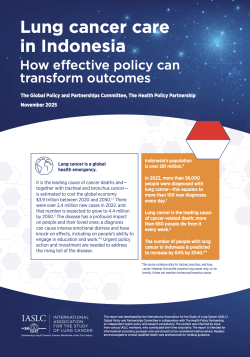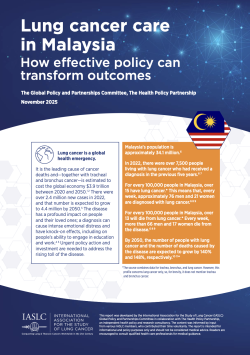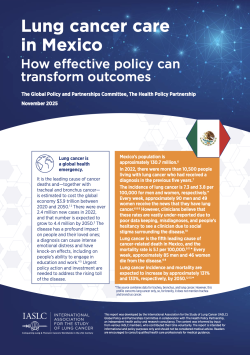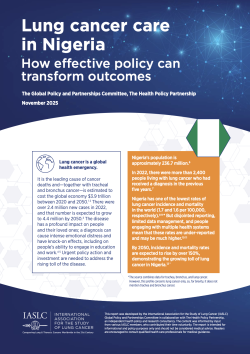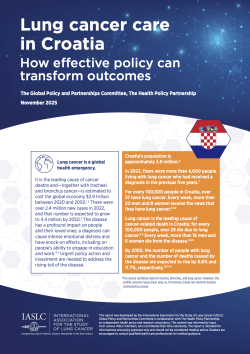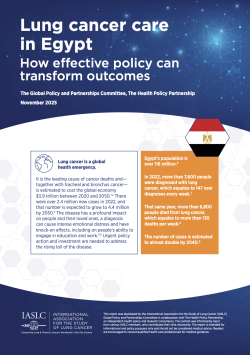The Global Policy and Partnerships Committee is focused on conquering thoracic cancers worldwide through policy change. Comprising global experts and professionals in the field of thoracic oncology, this committee is dedicated to advancing policy initiatives and enacting evidence-based recommendations to improve the prevention, diagnosis, and treatment of thoracic malignancies worldwide.

Committee projects
Chair of Committee
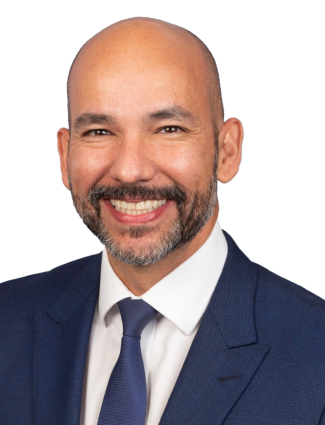
Gilberto Lopes
2025-2027
2025-2027 Roster
Committee Responsibilities
- Policy Development: The committee's primary responsibility is to develop comprehensive and actionable policy recommendations that address critical issues in thoracic malignancies by working side by side with policymakers and other essential stakeholders. These recommendations will be based on a thorough analysis of current research, clinical practices, and global healthcare disparities. The committee will strive to promote equitable access to high-quality care, foster innovative approaches to prevention, screening, and early detection, and enhance treatment outcomes for patients with thoracic malignancies.
- Collaboration and Partnerships: The committee recognizes the importance of collaboration and partnership to effect meaningful change. It will actively engage with other professional societies, research institutions, governmental agencies, patient advocacy groups, and stakeholders to foster interdisciplinary cooperation. By forging strategic alliances, the committee will leverage collective expertise, resources, and influence to advocate for policy changes and drive the implementation of its recommendations.
- Policy Advocacy and Education: To promote awareness and adoption of its recommendations, the committee will engage in advocacy efforts at national and international levels. It will actively participate in policy discussions, contribute to scientific conferences and symposia, and collaborate with media outlets to disseminate information. The committee will also develop educational resources, including guidelines, toolkits, and training programs, to empower healthcare providers, policymakers, and patients in their efforts to improve thoracic cancer care.
- Monitoring and Evaluation: The committee will continuously monitor the implementation and impact of its policy recommendations. By tracking progress, evaluating outcomes, and conducting periodic reviews, the committee will refine and update its recommendations to ensure they remain relevant and responsive to the evolving landscape of thoracic malignancies. This iterative process will enable the committee to effectively address emerging challenges and adapt strategies accordingly.




